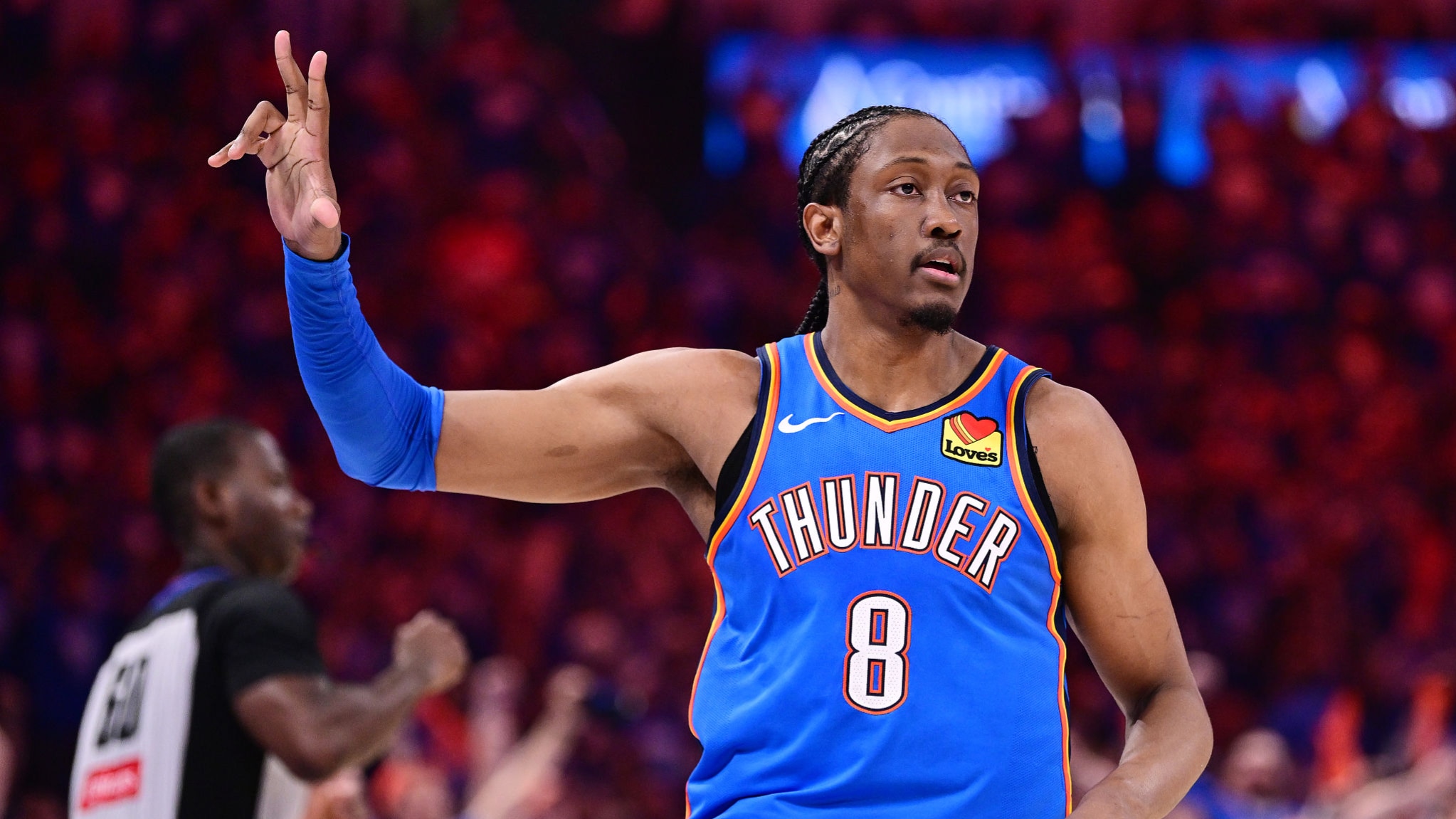Featured Video
NBA's New Gen is HERE 📍

LaMarcus Aldridge's Hall of Fame Case May Be Stronger Than You Think
LaMarcus Aldridge hit the NBA world with shocking news Thursday morning, when he abruptly announced his retirement on social media.
"I've made the difficult decision to retire from the NBA," Aldridge wrote. "For 15 years, I've put basketball first, and now, it is time to put my health and family first."
He explained the reason for his decision, which came in large part because of an irregular heartbeat during his last game, in further detail:
TOP NEWS

Blockbuster NBA Trade Ideas for Celtics, Suns and Teams Desperate For a Change

2025 NBA Playoffs Eastern and Western Conference Finals Bold Predictions

Ranking Nikola Jokić and the Best 5-Year NBA Star Runs Ever
Aldridge is walking away with top-100 ranks in several major statistical categories. He's 47th in NBA history in career points, 62nd in rebounds, 68th in blocks, 36th in field goals and 71st in minutes. He earned seven All-Star appearances, five All-NBA nods and three top-10 MVP finishes.
For his career, Aldridge averaged 20.4 points, 8.7 rebounds and 2.1 assists per 36 minutes. The 150 Hall of Famers who played at least one NBA minute combined to average 19.6 points, 8.2 rebounds and 4.2 assists per 36. His per-minute playoff production is in the same range as that of the Hall of Famers too.
During his 15 seasons, his teams were plus-3.9 points per 100 possessions when he was on the floor and minus-1.1 when he was off.
Throughout most of that decade-and-a-half, the Portland Trail Blazers, San Antonio Spurs and, for a brief time, the Brooklyn Nets could rely on Aldridge for dependable post-up offense, solid interior defense and his trademark, high-release mid-range jumper.
For years, particularly when he played in Portland, that turnaround felt borderline automatic, even when he had a hand in his face. And his reliability as a second-level scorer helped his offenses hum.
In each of his first 10 seasons (and 12 of his first 13), Aldridge's teams scored more points per 100 possessions when he was on the floor.
All of the accolades and numbers listed above contribute to a 50.9 percent chance to make the Hall of Fame, according to Basketball Reference. Essentially, a coin flip.
The site reads:
"For the Hall of Fame problem, we tried to use as many predictor variables as we could. Player awards, sustained effectiveness as measured by appearances on leaderboards, and peak dominance (measured as a player's peak Win Shares output), all have explanatory value. Number of championships is a strong predictor, as well, along with the player's height."
With that explanation, it's easy to see why Aldridge's odds rank 19th among active players. He sustained above-average play for years, piled up basic numbers and stands 6'11".
What hurts him, of course, is the lack of playoff success.
He only made it past the first round three times. His teams were significantly worse when he played in the postseason, and he's 159th in career playoff wins over replacement player.
The biggest what-if likely came in 2017, when Aldridge's Spurs finished the regular season with the second-best simple rating system (point differential combined with strength of schedule) and eventually met the only team ahead of them, the Golden State Warriors, in the Western Conference Finals.
The dynastic Warriors swept that series, but it's hard to forget Zaza Pachulia's infamous closeout in Game 1. San Antonio was up 21 points with just under eight minutes to play when Pachulia slid under the feet of a jump-shooting Kawhi Leonard, who finished third in MVP voting that season, and knocked him out of the rest of the series.
The Warriors came back to win that game and cruised through the rest of the playoffs.
Even with Leonard, San Antonio's chances of winning that series were probably slim, but a title for Aldridge in 2017 would certainly give his Hall of Fame credentials a boost.
But even without a championship, he still deserves serious consideration.
Titles are a team accomplishment, and Aldridge happened to play the majority of his career in the Western Conference, where a number of juggernauts reigned. During the early portion of his career, Tim Duncan's Spurs, Kobe Bryant's Los Angeles Lakers, Steve Nash's Phoenix Suns and Dirk Nowitzki's Dallas Mavericks, just to name a few, were all in their heyday.
During his mid- to late-career years, Kevin Durant rose to prominence in the West, and the Warriors dynasty took shape.
Aldridge was on plenty of good teams during his career, but few (if any) were ever considered real challengers to the powerhouse rosters laden with multiple superstars.
His lack of a title shouldn't define him.
Numbers shouldn't either, but Aldridge's career 1.7 box plus/minus would rank 56th among Hall of Famers. And during what is perhaps the most talent-rich era in the NBA's history, he was consistently considered one of the top offensive players in the league.
Enshrining him in the Hall of Fame wouldn't cheapen the accomplishment for others. It would simply help to tell a more in-depth story of this era.






